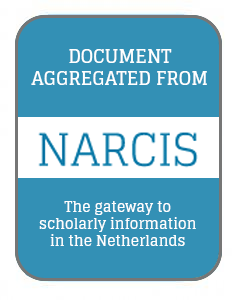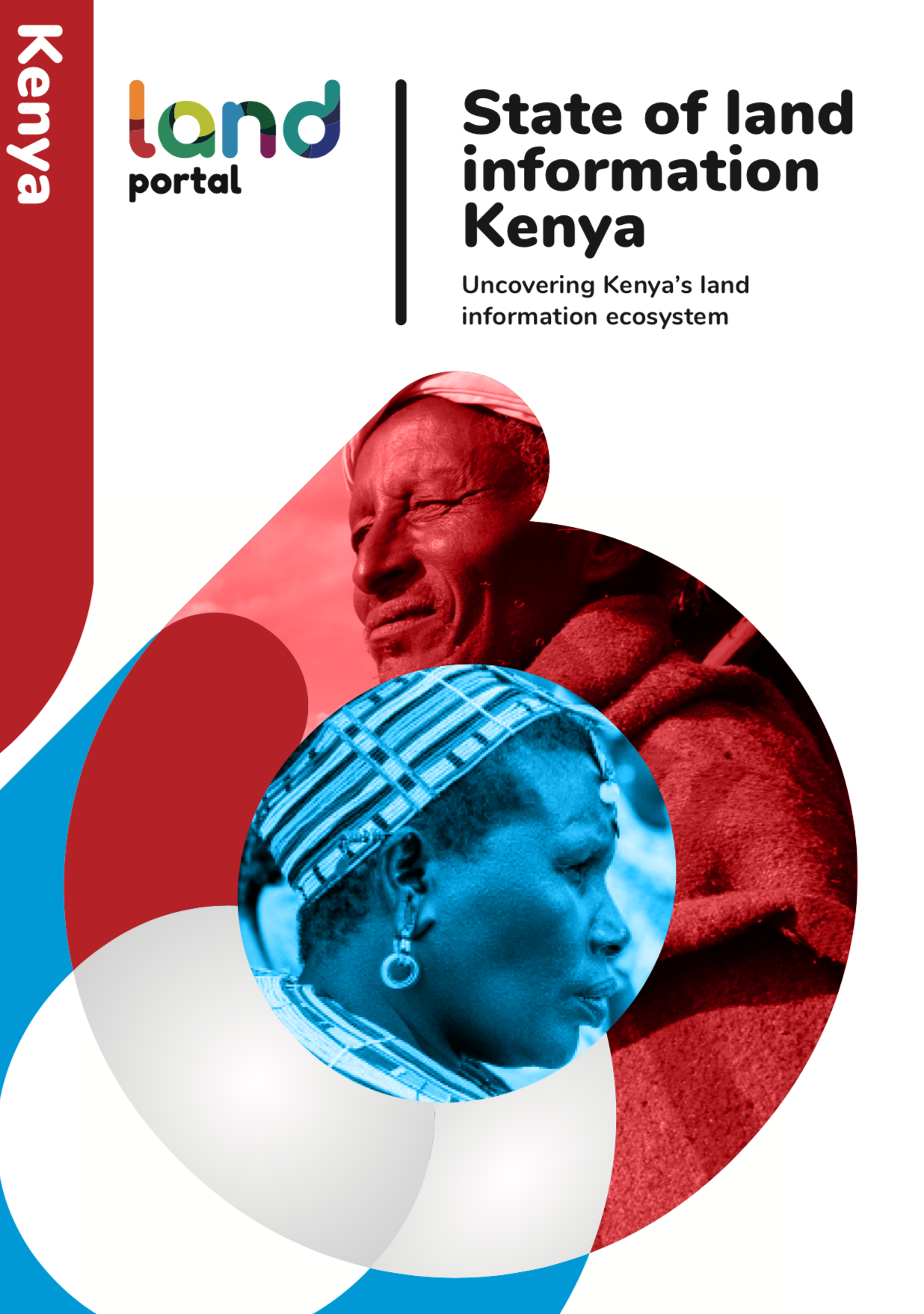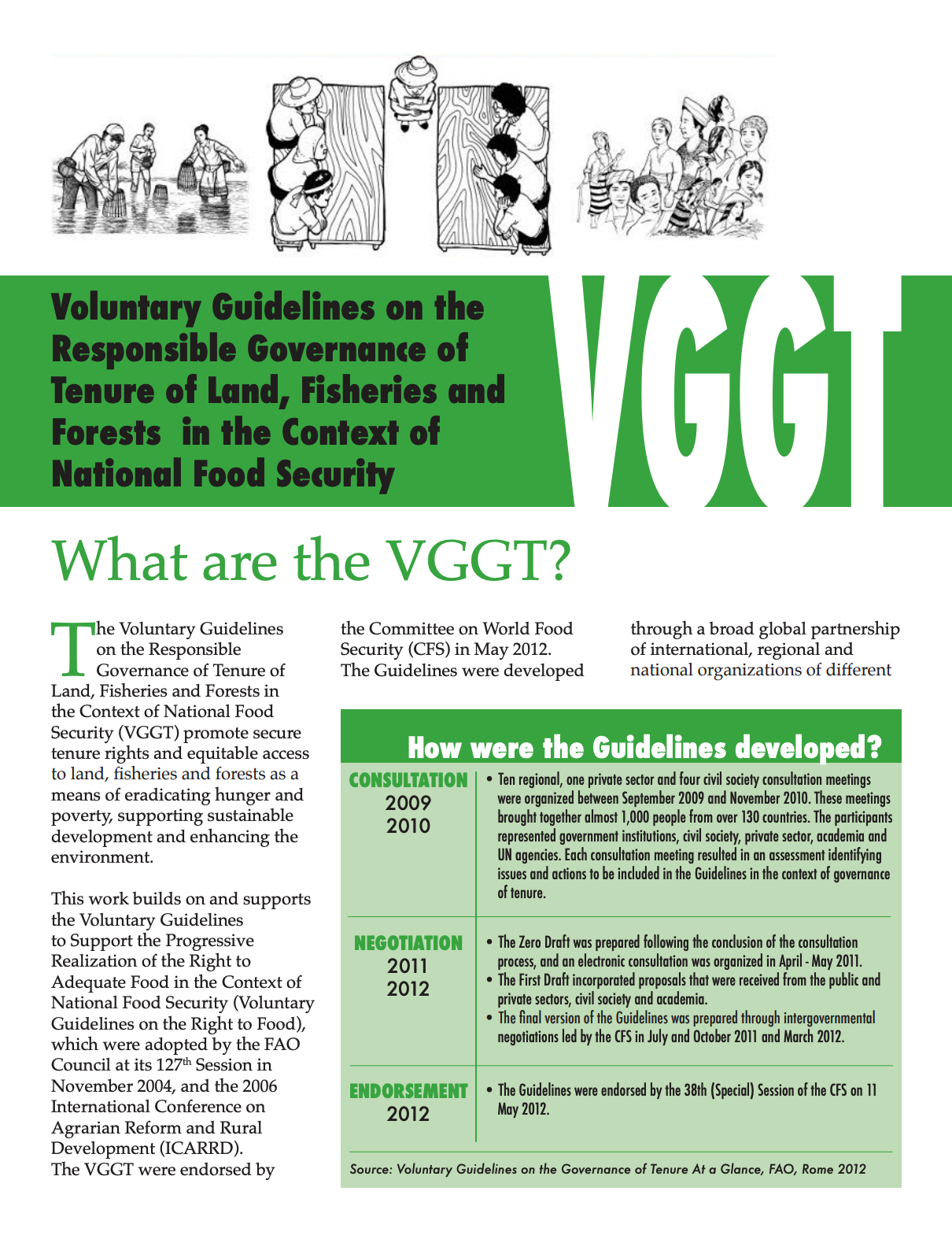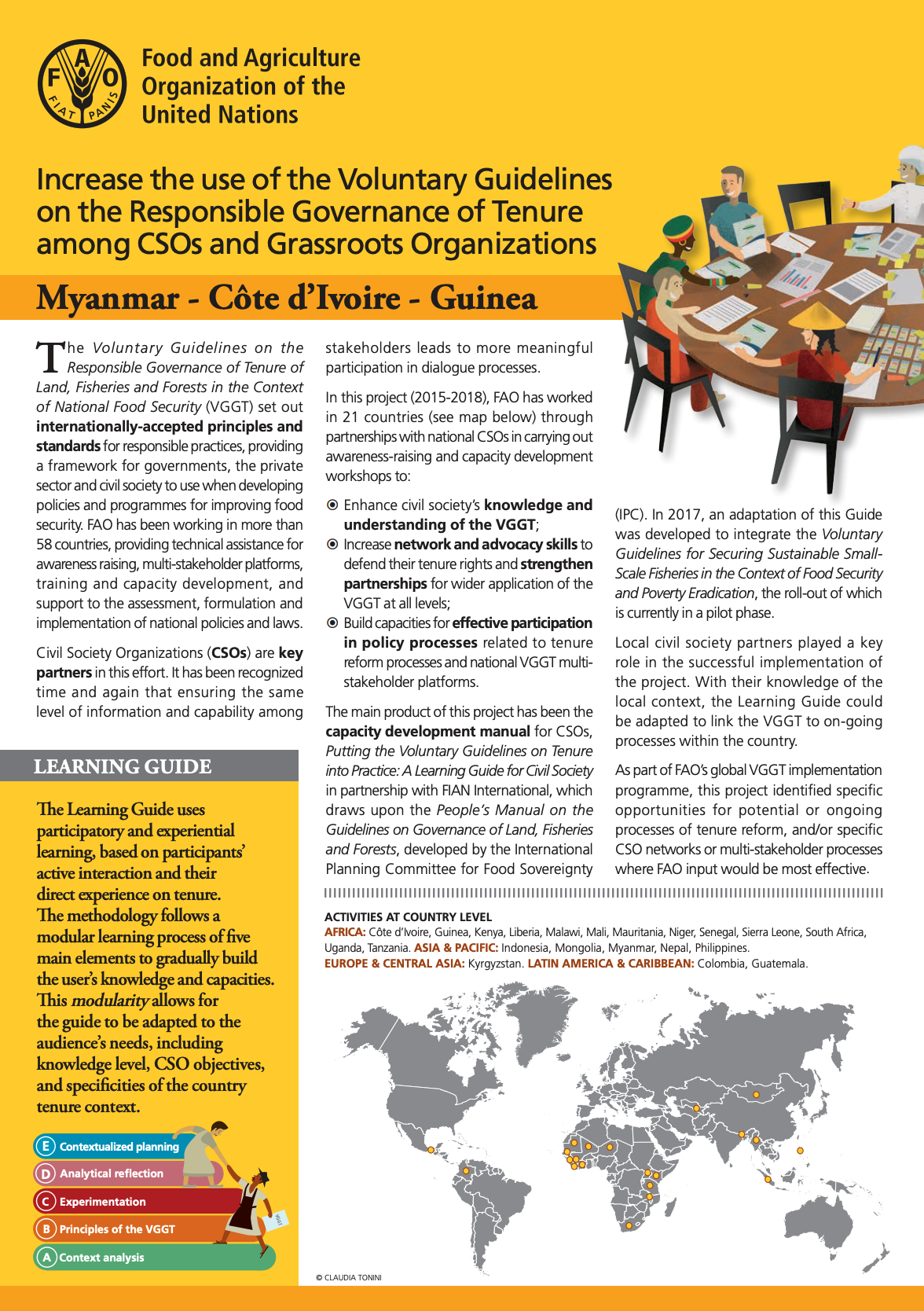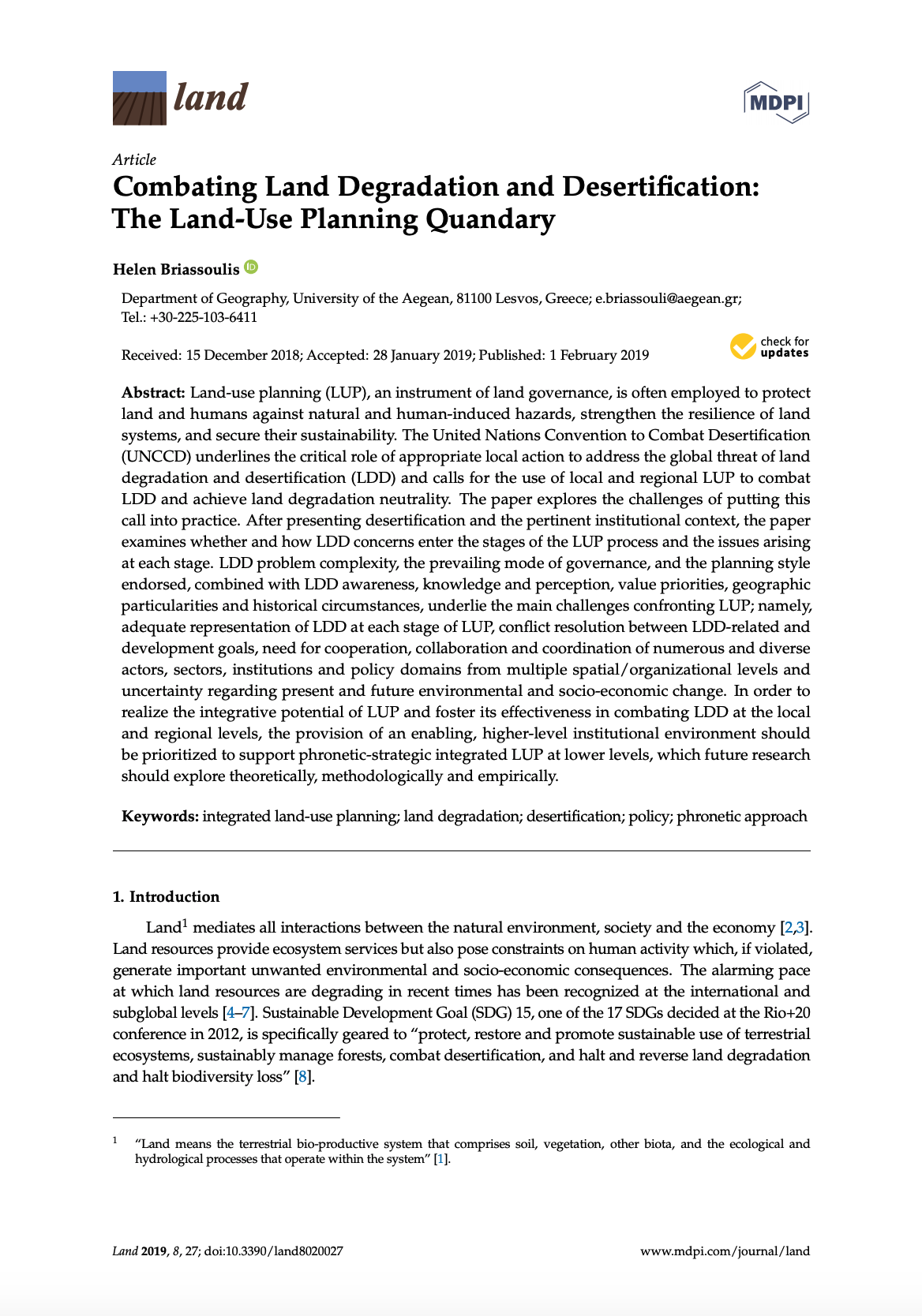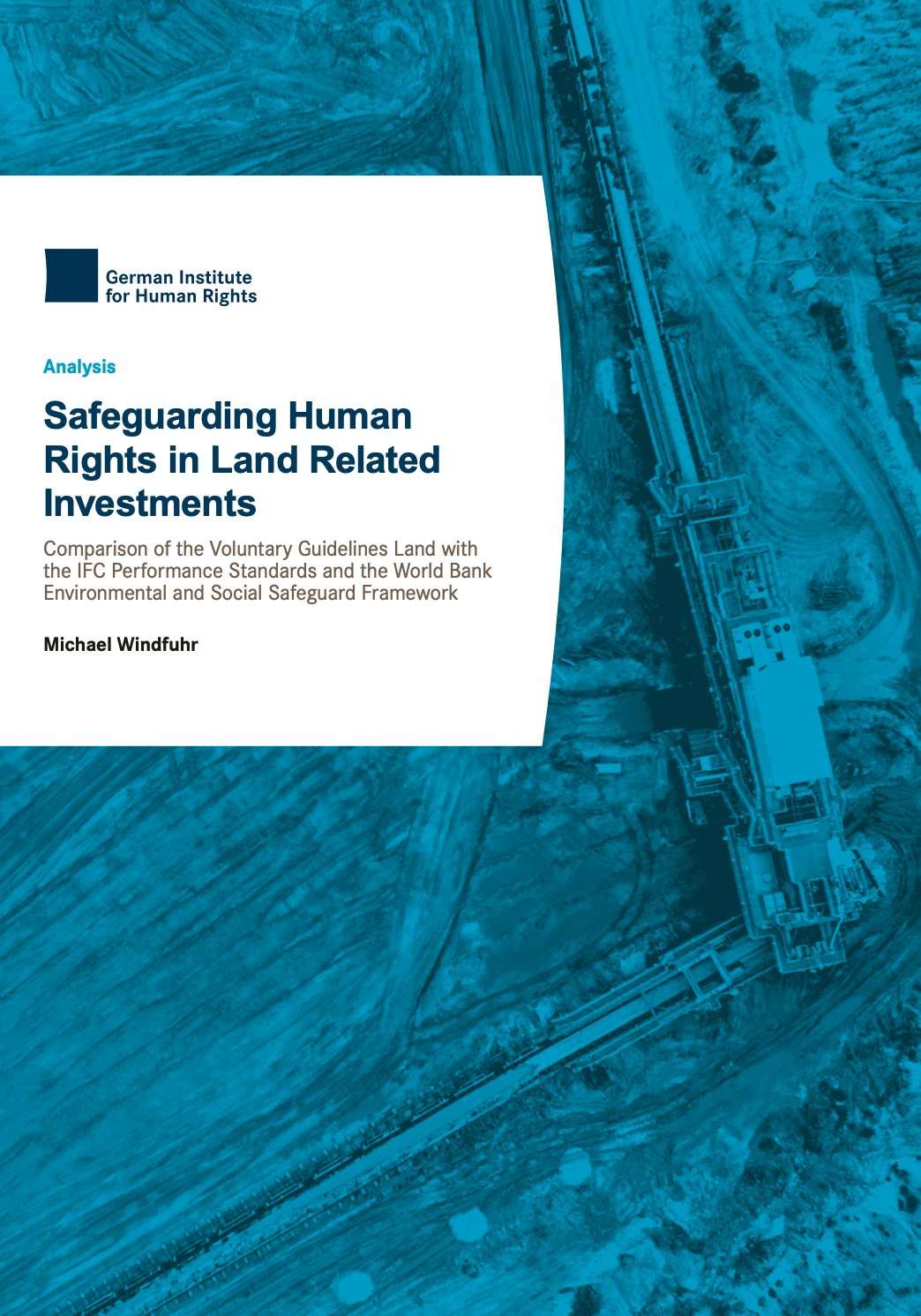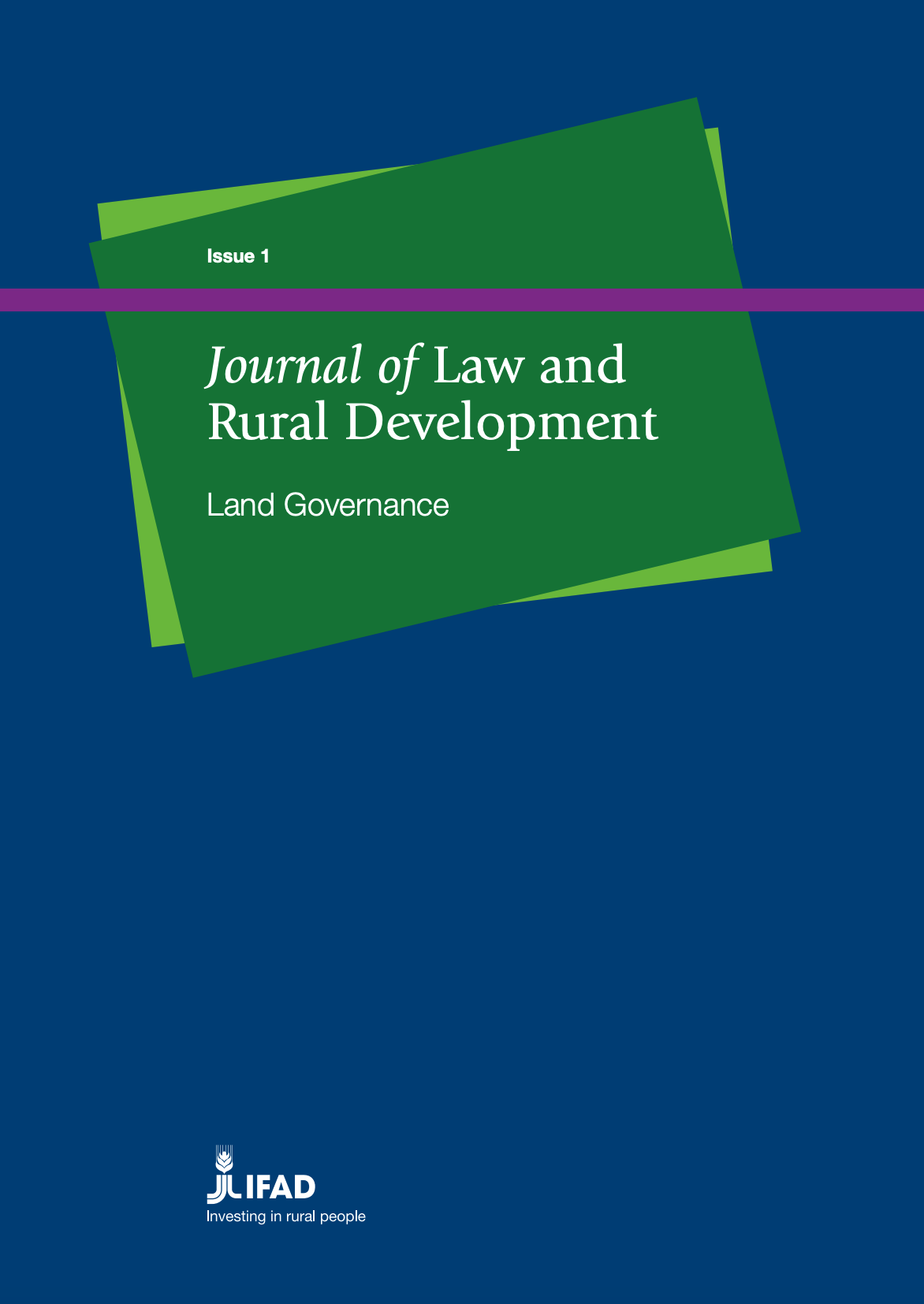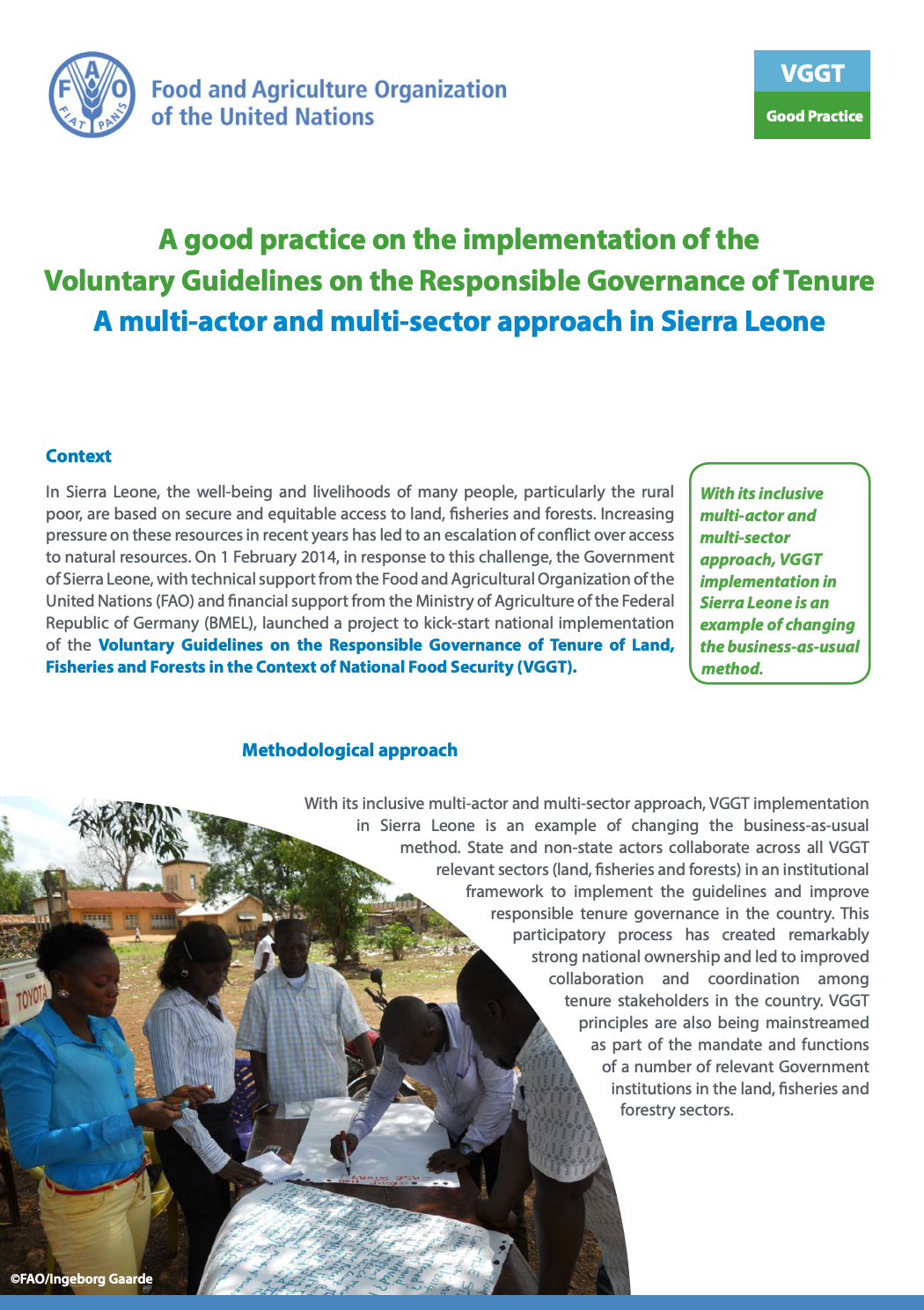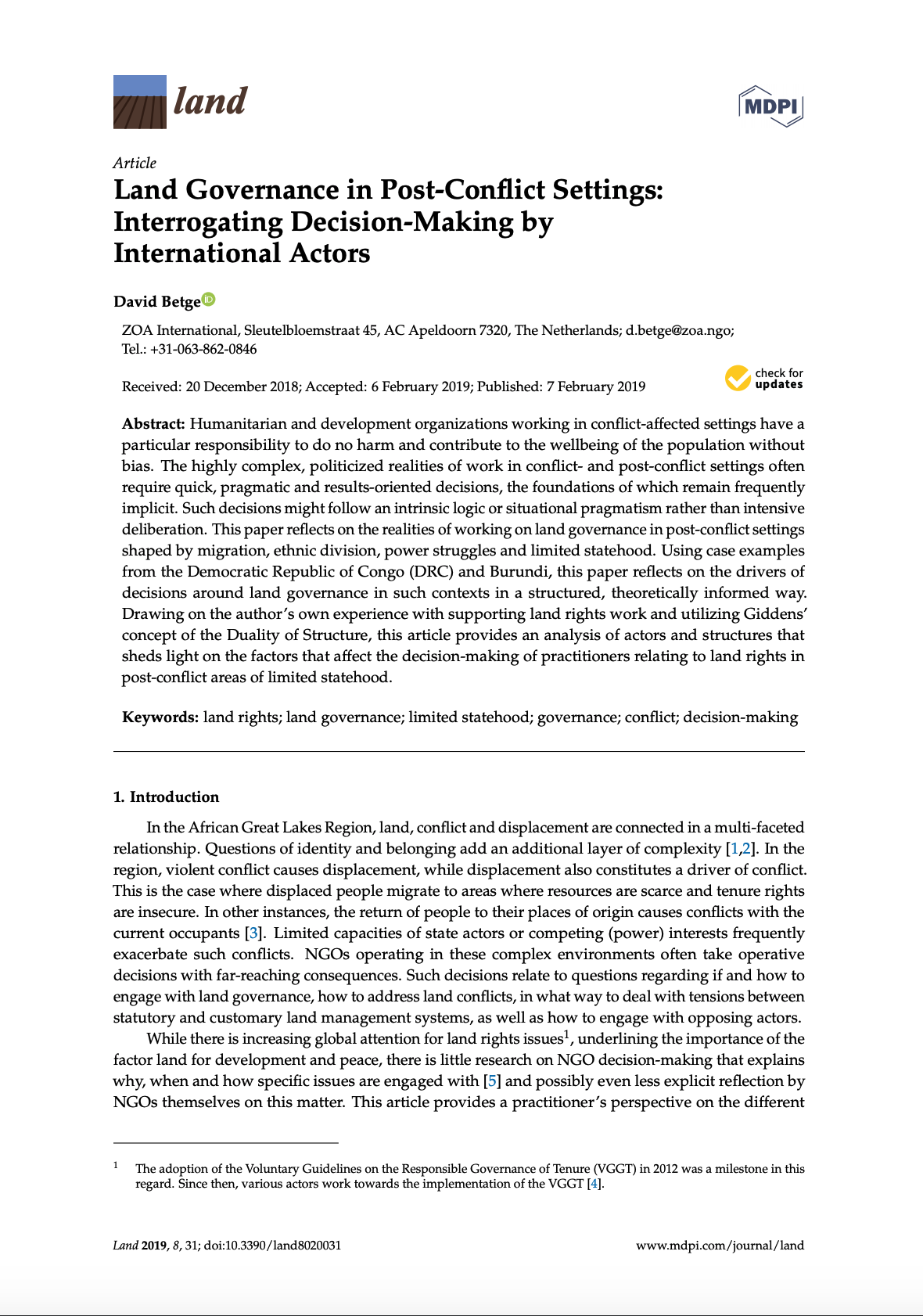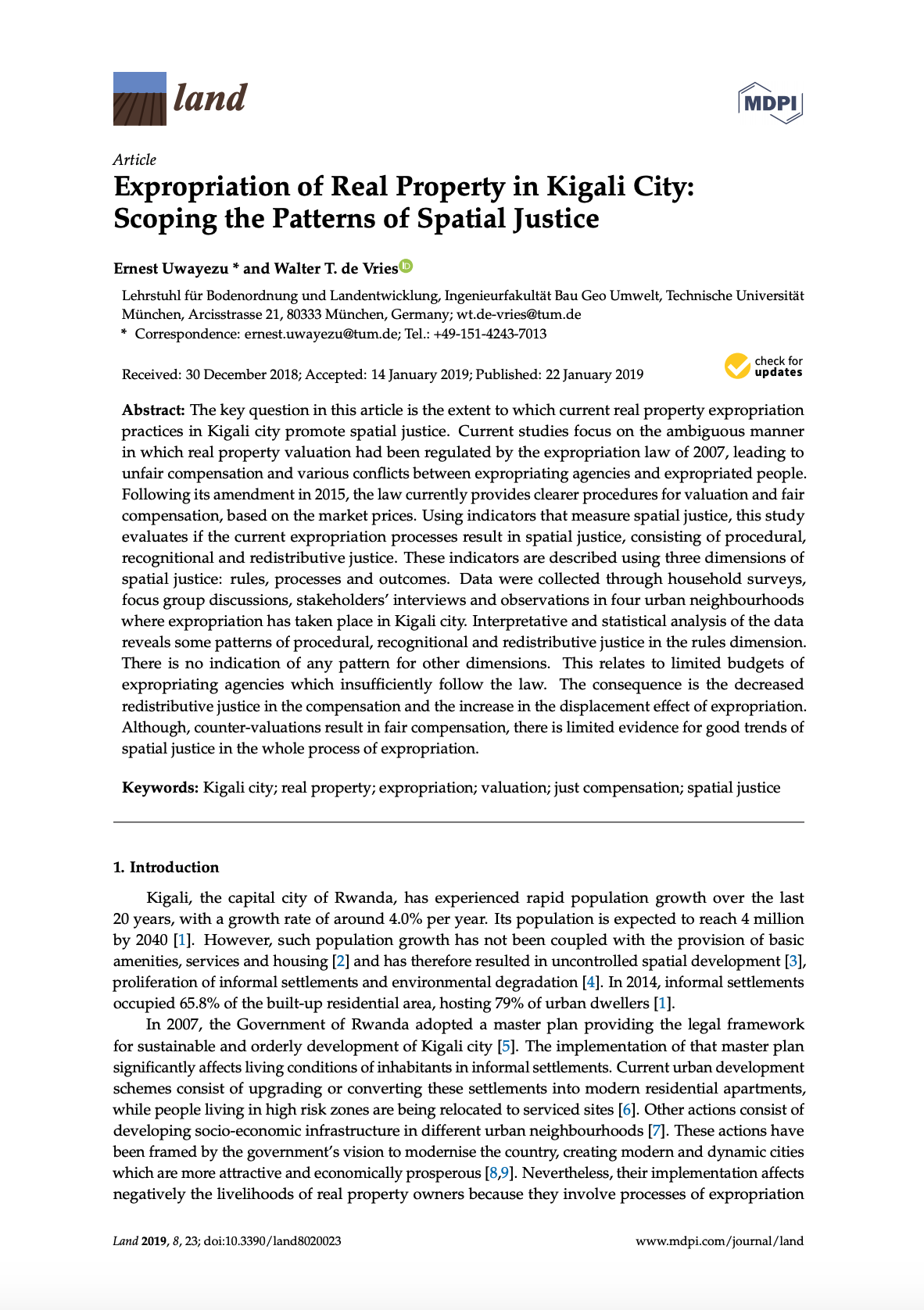Gobernanza de la tierra
AGROVOC URI:
State of Land Information Kenya: Uncovering Kenya's Land Information Ecosystem
Availability of accurate and up to date data and information on land and different land uses, such as agriculture, forestry, mining, wildlife, water, housing and infrastructure, is critical to effective land governance and crucial for planning and managing the use of land and land-based resources. Public institutions and the government need land data and information for appropriate and timely decision-making; while land users, the general public and other stakeholders need it to effectively monitor and influence those decisions.
Role of Land Governance in Improving Tenure Security in Zambia: Towards a Strategic Framework for Preventing Land Conflicts
Zambia is one of the countries in Africa with a high frequency of land conflicts. The conflicts over land lead to tenure insecurity. In response to the increasing number of land conflicts, the Zambian Government has undertaken measures to address land conflicts, but the measures are mainly curative in nature. But a conflict sensitive land governance framework should address both curative and preventive measures.
ANGOC: Voluntary Guidelines on the Responsible Governance of Tenure of Land, Fisheries and Forests in the Context of National Food Security
This document was written by the Asian NGO Coalition for Agrarian Reform and Rural Development (ANGOC) with the view of increasing awareness and understanding in the context of the Philippines of the VGGT. This material draws from previous materials prepared by ANGOC as well as from the presentation and discussion during the training of trainers on “Increasing the use of the Voluntary Guidelines on the Responsible Governance of Tenure of Land, Fisheries and Forests among CSOs and Grassroots Organizations in the Philippines” held on 11-14 July 2016 in Tagaytay City, Philippines.
Increase the use of the Voluntary Guidelines on the Responsible Governance of Tenure among CSOs and Grassroots Organizations - Myanmar - Côte d’Ivoire - Guinea
The Voluntary Guidelines on the Responsible Governance of Tenure of Land, Fisheries and Forests in the Context of National Food Security (VGGT) set out internationally-accepted principles and standards for responsible practices, providing a framework for governments, the private sector and civil society to use when developing policies and programmes for improving food security.
Combating Land Degradation and Desertification: The Land-Use Planning Quandary
Land-use planning (LUP), an instrument of land governance, is often employed to protect land and humans against natural and human-induced hazards, strengthen the resilience of land systems, and secure their sustainability. The United Nations Convention to Combat Desertification (UNCCD) underlines the critical role of appropriate local action to address the global threat of land degradation and desertification (LDD) and calls for the use of local and regional LUP to combat LDD and achieve land degradation neutrality. The paper explores the challenges of putting this call into practice.
Safeguarding Human Rights in Land Related Investments
The Voluntary Guidelines on the Responsible Governance of tenure of Land, Fisheries and Forests in the Context of national Food Security (VGGt) represent a new international legal instrument, which was adopted unanimously in 2012 by the United nations Committee on World Food Security (CFS). the Guidelines are a soft law instrument that does not create new, legally binding obligations for states or responsibilities for private actors, but that applies existing governance standards, particularly for human rights, to the management of land.
Facts 33: Voluntary Guidelines on the Responsible Governance of Tenure of Land, Fisheries and Forests
Why are the Voluntary Guidelines on the Responsible Governance of Tenure of Land, Fisheries and Forests important?
Journal of Law and Rural Development: Land Governance
This is the first issue of the Journal of Law and Rural Development, published by IFAD. IFAD’s mandate to address rural poverty and promote rural development is unique among international organizations. For many years IFAD limited its activities to financing projects and programmes implemented by its Member States, but over the last decade it has begun to transform itself into a knowledge centre and a key participant in the international policy dialogue around rural development issues. The launch of this journal is another step forward in this transformation.
A good practice on the implementation of the Voluntary Guidelines on the Responsible Governance of Tenure: A multi-actor and multi-sector approach in Sierra Leone
In Sierra Leone, the well-being and livelihoods of many people, particularly the rural poor, are based on secure and equitable access to land, fisheries and forests. Increasing pressure on these resources in recent years has led to an escalation of conflict over access to natural resources.
Land Governance in Post-Conflict Settings: Interrogating Decision-Making by International Actors
Humanitarian and development organizations working in conflict-affected settings have a particular responsibility to do no harm and contribute to the wellbeing of the population without bias. The highly complex, politicized realities of work in conflict- and post-conflict settings often require quick, pragmatic and results-oriented decisions, the foundations of which remain frequently implicit. Such decisions might follow an intrinsic logic or situational pragmatism rather than intensive deliberation.
Expropriation of Real Property in Kigali City: Scoping the Patterns of Spatial Justice
The key question in this article is the extent to which current real property expropriation practices in Kigali city promote spatial justice. Current studies focus on the ambiguous manner in which real property valuation had been regulated by the expropriation law of 2007, leading to unfair compensation and various conflicts between expropriating agencies and expropriated people. Following its amendment in 2015, the law currently provides clearer procedures for valuation and fair compensation, based on the market prices.

